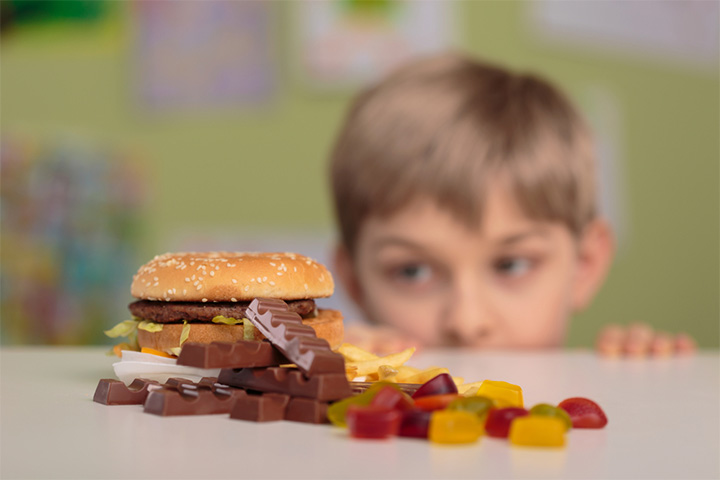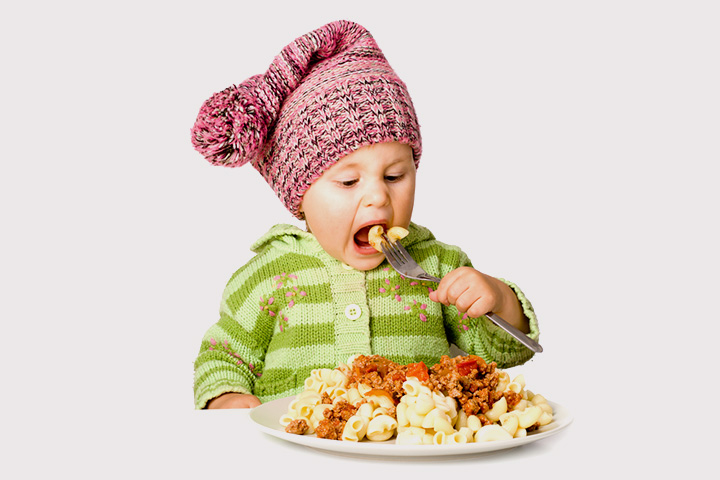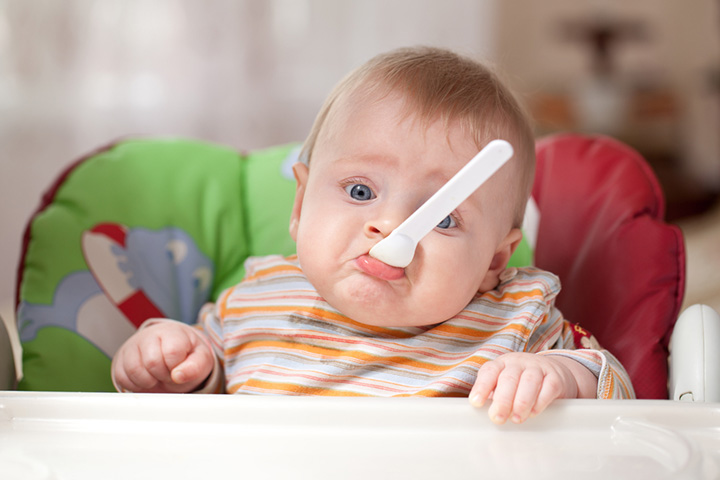
Image: Shutterstock
As a parent, it is natural to be concerned about your child’s eating habits. You might be engaged in a thousand different activities, but the thought of getting your kid the required nutrients for proper growth is always lurking somewhere in your mind. We often put our own experiences into use – practices passed down from one generation to the next – while trying to get our kids to eat. However, it is essential to understand that while these may work in getting your little one to down their food now, they might affect them in other ways.
To help you understand how some measures can prove counterproductive for your kids, we have compiled a list of food mistakes parents usually make. Let’s take a look!
1. “You Will Get Dessert If…”
Ah, the good old strategy of bribing kids with desserts. While it may get your little ones to follow your orders diligently, parents must realize that dessert should never be used as a reward because it diminishes the value of the healthier meals in the child’s eyes. Many parents also tend to withhold dessert if their kids do not finish their meal, which is something you should avoid doing.
2. “You Must Wipe Your Plates Clean.”
Most of us grew up hearing, “People are starving, and you dare take your food for granted?” While parents mean well when they cite this particular example, this is one practice that needs to be annihilated without delay. Most often, the portions we eat are far more than we need for nourishment. By expecting children to clean their plates every time they sit for a meal, we are ensuring that they overeat. In the long run, it impacts their ability to understand hunger cues. They fail to gauge when they are full, ultimately making them overweight. Besides, if we keep forcing them to finish their food, they might develop a dislike towards that particular item in the future.
3. “Are You Sure You’re Hungry?”
Your child may have eaten just a couple of hours ago, but doubting their hunger cues isn’t a good move. Instead of telling them, “I don’t think you are hungry”, we suggest you follow Ellyn Satter’s Division of Responsibility in Feeding (1). This principle encourages you to decide the whats, whens, and wheres of a meal while entrusting your child to decide how much and if they want to eat whatever has been served.
Image: Shutterstock
4. “You Can’t Have These. They’re Unhealthy”
Parents often keep unhealthy treats out of reach because they know that children will indulge in binge eating. However, will this practice help your kids stay away from tempting snacks even while away from home? When even adults have fallen because of forbidden foods, how can we expect kids not to walk right into the trap? Giving your child a treat but restricting its consumption will affect their self-regulation abilities around those snacks in the future (2). The easiest solution is to keep highly processed, unhealthy foods out of the house altogether. Out of sight, out of mind!
5. “I Am A Picky Eater, And So Is My Child.”
Kids learn from what they see and hear. If you take a positive approach towards food and eating habits, your child will learn the same (3). If you are a picky eater and let the same habits grow in your child, they will retain these traits in the future. We suggest you eat various foods and encourage your child to do the same. It is also essential not to speak negatively about your body size, food choices, or appetite. Healthy eating habits start with you.
6. “How Does Presentation Matter?”
Children love visually appealing things. So if their bland meal is spruced up with some color with the help of sauce, ranch dressing, cheese, or butter, it will make the food more appetizing, and the mischief-makers might just eat their leafy greens without creating a fuss.
Image: Shutterstock
7. “It’s Not Too Much!”
Parents often forget that a child’s belly is much smaller than an adult’s. It is vital not to serve gigantic portions because it may lead to negative eating habits like overeating. We suggest you serve a balanced meal and choose double servings of small portions instead of one huge portion on their plate.
8. “You Don’t Have To Know What’s In There.”
We often keep children out of the cooking process. However, if they are involved in it, right from getting the ingredients to cooking the dish, they are more likely to want to eat those foods. When kids help choose the ingredients, wash and prepare them, they are more excited to try the food out.
9. “If You Do This, You Will Get A Snack.”
Have you ever gotten your child to do their homework in exchange for a cookie? Does “If you misbehave, there will be tinday ki sabzi for lunch” ring a bell? Food-based penalties and rewards make unhealthy snacks seem more flavorful and healthy meals worse. Using food as rewards and punishments may lead to emotional eating habits when children get older.
Image: Shutterstock
10. “Don’t Be So Difficult. Just Try It!”
Kids often seem unwilling to try new things. It is a common issue called “food neophobia”, which is the reluctance to try new foods (4). This condition cannot be overcome by forcing kids to eat new food items. Instead, we recommend you take it slow and be patient with them.
We hope this list helps you curate happy and healthy mealtimes with your kids from now on. Meanwhile, it is important to remember that while helping children develop healthy eating habits can be challenging for parents, you must persevere instead of giving up. Good luck!















